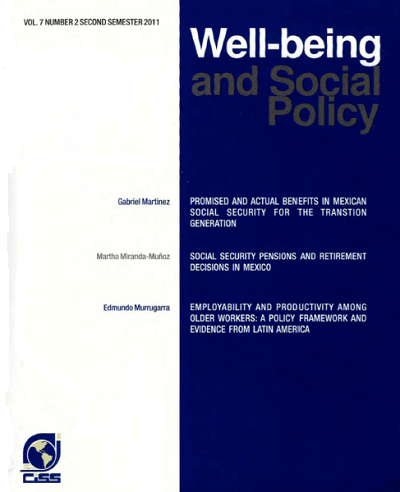
Using Mexican cohort data for 1991-2000 this article examines the relationship between retirement decisions —the transition from work to labor market inactivity— and social security (contributive) pensions in less developed countries. The available large time series also makes possible to examine how a financial crisis that took place in 1995 has affected retirement incentives. In most Latin American countries social security pensions are non-universal and it may be possible to receive pension benefits and continue working in the informal sector. In an attempt to capture the no-intention to continue working ata given age, the analysis of retirement behavior begins with the construction of a measure of retirement incentives based on the "option value" (Stock and Wise 1990) that accounts for the size of the informal sector to study the role of social security pensions at the economy-wide level. Then, retirement outcomes are regressed on the measure of retirement incentives. The calculations show that the gain of postponing retirement rises with age but increments are reduced dramatically over time for younger cohorts after economic crises. The results indicare that social security pension wealth is important in determining the probability of retirement even in a country with a relatively large informal sector; pension wealth is positively and strongly associated with the propensity to retire.
